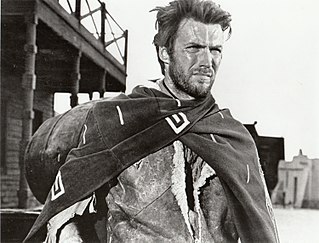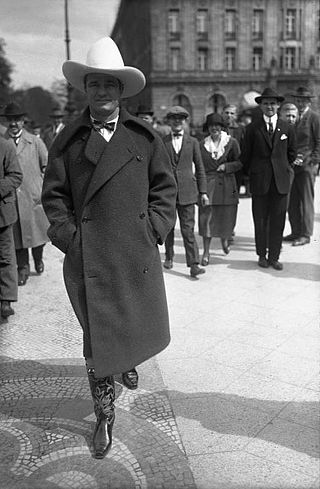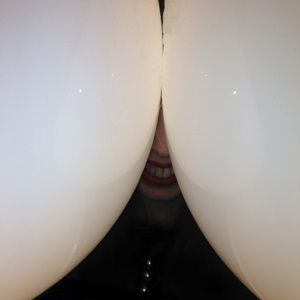
A film genre is a stylistic or thematic category for motion pictures based on similarities either in the narrative elements, aesthetic approach, or the emotional response to the film.
Genre is any style or form of communication in any mode with socially agreed-upon conventions developed over time. In popular usage, it normally describes a category of literature, music, or other forms of art or entertainment, based on some set of stylistic criteria. Often, works fit into multiple genres by way of borrowing and recombining these conventions. Stand-alone texts, works, or pieces of communication may have individual styles, but genres are amalgams of these texts based on agreed-upon or socially inferred conventions. Some genres may have rigid, strictly adhered-to guidelines, while others may show great flexibility.

An animator is an artist who creates multiple images, known as frames, which give an illusion of movement called animation when displayed in rapid sequence. Animators can work in a variety of fields including film, television, and video games. Animation is closely related to filmmaking and like filmmaking is extremely labor-intensive, which means that most significant works require the collaboration of several animators. The methods of creating the images or frames for an animation piece depend on the animators' artistic styles and their field.

Westworld is a 1973 American science fiction Western film written and directed by Michael Crichton. The film follows guests visiting an interactive amusement park containing lifelike androids that unexpectedly begin to malfunction. The film stars Yul Brynner as an android in the amusement park, with Richard Benjamin and James Brolin as guests of the park.
A sports film is a film genre in which any particular sport plays a prominent role in the film's plot or acts as its central theme. It is a production in which a sport or a sports-related topic is prominently featured or is a focus of the plot. Despite this, sport is ultimately rarely the central concern of such films and sport performs primarily an allegorical role. Furthermore, sports fans are not necessarily the target demographic in such movies, but sports fans tend to maintain a high following and esteem for such movies.

The Daytime Emmy Awards, or Daytime Emmys, are part of the extensive range of Emmy Awards for artistic and technical merit for the American television industry. Bestowed by the New York-based National Academy of Television Arts and Sciences (NATAS), the Daytime Emmys are presented in recognition of excellence in American daytime television programming. The first ceremony was held in 1974, expanding what was originally a prime time-themed Emmy Award. Ceremonies generally are held in May or June.
Adult animation, also known as mature animation, and infrequently as adult-oriented animation, is any type of animated motion work that is catered specifically to adult interests and is mainly targeted and marketed towards adults and adolescents, as opposed to children or all-ages audiences.

Futureworld is a 1976 American science fiction thriller film directed by Richard T. Heffron and written by Mayo Simon and George Schenck. It is a sequel to the 1973 Michael Crichton film Westworld, and is the second installment in the Westworld franchise. The film stars Peter Fonda, Blythe Danner, Arthur Hill, Stuart Margolin, John Ryan, and Yul Brynner, who makes an appearance in a dream sequence; no other cast member from the original film appears. Westworld's writer-director, Michael Crichton, and the original studio Metro-Goldwyn-Mayer were not involved in this production. Composer Fred Karlin was retained.

Jonathan Nolan is a British and American screenwriter and producer. He is the creator of the CBS science fiction series Person of Interest (2011–2016) and co-creator of the HBO science fiction/Western series Westworld (2016–2022).

István Orosz is a Hungarian painter, printmaker, graphic designer and animated film director. He is known for his mathematically inspired works, impossible objects, optical illusions, double-meaning images and anamorphoses. The geometric art of István Orosz, with forced perspectives and optical illusions, has been compared to works by M. C. Escher.
The animated documentary is a moving image form that combines animation and documentary. This form should not be confused with documentaries about movie and TV animation history that feature excerpts.

In American films of the Western genre between the 1920s and the 1940s, white hats were often worn by heroes and black hats by villains to symbolize the contrast in good versus evil. The 1903 short film The Great Train Robbery was the first to apply this convention. Two exceptions to the convention were portrayals by William Boyd, who wore dark clothing as Hopalong Cassidy, and Robert Taylor's portrayal in the film The Law and Jake Wade (1958).

Westworld is an American dystopian science fiction Western television series created by Jonathan Nolan and Lisa Joy that first aired on October 2, 2016, on HBO. It is based upon the 1973 film of the same name written and directed by Michael Crichton and loosely upon its 1976 sequel, Futureworld.

All Hail King Julien is an American animated television series that stars King Julien, Maurice, and Mort from DreamWorks Animation's Madagascar franchise and takes place in Madagascar before the events of the first film, making it a prequel. It is the second DreamWorks Animation show to be based on the Madagascar franchise.

Bottomless Pit is the fifth studio album by experimental hip hop group Death Grips, released on May 6, 2016, through Third Worlds and Harvest Records.

The first season of the American science fiction western television series Westworld premiered on HBO on October 2, 2016, and concluded on December 4, 2016, consisting of ten episodes.

Westworld is an American science fiction-thriller media franchise that began with the 1973 film Westworld, written and directed by Michael Crichton. The film depicts a technologically advanced Wild-West-themed amusement park populated by androids that malfunction and begin killing the human visitors; it was followed by the sequel film Futureworld (1976). The franchise moved to television in 1980 with the short-lived series Beyond Westworld on CBS. In 2016 a new television series based on the original film debuted on HBO; the critically acclaimed series broadcast four full seasons before being cancelled.
The 43rd Saturn Awards, presented by the Academy of Science Fiction, Fantasy and Horror Films and honoring the best in science fiction, fantasy, horror, and other genres belonging to genre fiction in film, television, home media releases, and theatre in 2016 and early 2017, were held on June 28, 2017, in Burbank, California. A new category, Best Animated Series or Film on Television, was introduced. The show was hosted by Sean Gunn.
Patrick Clair is an Australian film director and title sequence designer. He has won the Primetime Emmy Award for Outstanding Main Title Sequence in 2014 and 2016. He has been nominated in the category twelve times. He is the founder of production and design studio Antibody.












